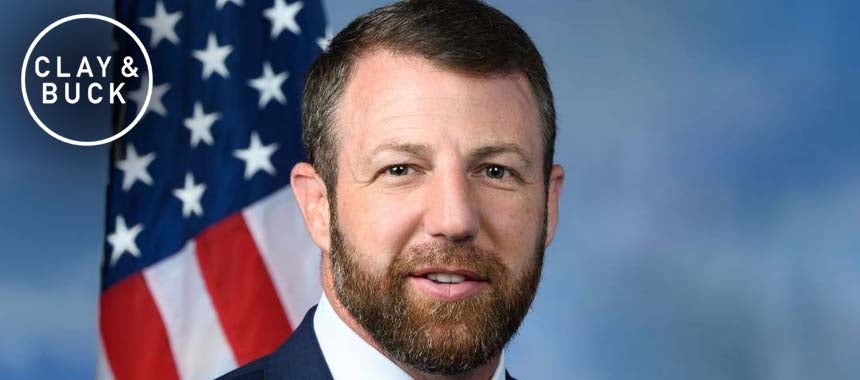White Males Left Behind by Feminized Education System
7 Sep 2021
BUCK: We were just talking about college. There’s a different story making the rounds now about college, one that I think deserves a whole lot more attention than it has gotten in recent years. It’s in the Wall Street Journal, and here’s the title: “A Generation of American Men Give Up on College. ‘I Just Feel Lost.'” Now, it’s a pretty long piece.
Clay and I both found some of the analysis fascinating and some of the statistics, which I wanted to give you a few of right now so we get a sense of this. “At the close of the 2020-21 academic year, women made up 59.5% of college students, an all-time high, and men 40.5% … 1.5 million fewer students compared with five years ago, and men accounted for 71% of the decline. ….
“The college gender gap cuts across race, geography and economic background. For the most part, white men — once the predominant group on American campuses—no longer hold a statistical edge in enrollment rates,” and in fact, “Enrollment rates for poor and working-class white men are lower than those of young Black, Latino and Asian men from the same economic backgrounds…”
This is according to Wall Street Journal analysis of the Pell Institute, which does Pell grants. Clay, there’s so much here. We could just start with this, though. It’s fascinating that for so many people in higher education that 60% are women. Obviously men, women, you’d want this to be 50-50, we would think, right? ‘Cause it’s roughly what the population is. Sixty percent of college students are women.
A lot of men… This translates into hundreds of thousands of men a year are choosing not to go to college who might have gone to college previously, and there’s a lot of factors in this. I mean, one, though, seems to be just the sense that is it really worth it? And are you gonna get the resources and encouragement as particularly a working class, white male in America today? No one’s gonna give a big speech with working class white males enrolling in college in larger numbers. They will about other demographics and other groups. What’s going on here, as you see it?
CLAY: Man. I think this is a big, seismic shift in American culture that’s going on. So we start here. Buck, you and I were at the forefront of this when we were in college. And I remember when I was in law school, my law school class had more women than men, which was unheard of. And I remember when we would go for on-campus interviews, the men would overwhelmingly be interviewing us.
‘Cause they tended to be lawyers who had been lawyers for a long time, and I remember them saying, “Well, we’re trying to get more female lawyers into the firms,” and I remember thinking to myself, “Well, wait a minute. If you use Vanderbilt Law School where I was going as a proxy, there are going to be more female law graduates then there are men in short order,” and we basically have reached that level.
 Now, when you think about 60%, effectively, of all college students being women, I think to me the first thing that jumps out is — and this is larger scale. I think this implicates elementary school, and I know there’s probably a lot of parents out there who will feel like this as well. I think schools do a worse job of educating boys than they do girls, and some people are gonna say. “Oh, my God. What are you talking about?”
Now, when you think about 60%, effectively, of all college students being women, I think to me the first thing that jumps out is — and this is larger scale. I think this implicates elementary school, and I know there’s probably a lot of parents out there who will feel like this as well. I think schools do a worse job of educating boys than they do girls, and some people are gonna say. “Oh, my God. What are you talking about?”
I think that we have feminized the education dynamic to such an extent that the way that we teach is more designed towards women than it is towards men and towards girls than it is towards boys. So I think that environment that we create — and I think it was a well-intentioned idea, which was, “Hey, women are wildly underrepresented,” 50 years ago or 40 years ago or whatever it was on college on campuses, “and so we’re going to cater more towards them.”
I think that has led to a feminized educational environment. I also think there are a lot of men out there that look at the cost of school and they say, “Wait a minute. At 18 years old, I can go learn a trade. Plumbing, electricity. There are lots of jobs that can pay well for men that don’t require, in any way, a college degree. Military. There’s still a lot of people who go into the military.
And I think there are a lot of men who look at the cost of education, and they say, “Wait a minute. If I know what I’m interested in doing already, I don’t know that I gain a lot from college.” And I’ll be honest with you, Buck. I think that now as a dad. If my son, one of them, came to me and said, “Hey, Dad, I know what I want to do. I want to go work in,” let’s say, something high-tech, right? I don’t know that they gain that much from going and getting a degree.
BUCK: Right. So there are clearly incentive changes or people are feeling like the non-dischargeable… ‘Cause if you’re gonna make 30 or $40,000 a year in a full-time job let’s say, something like that, and you’re gonna be take on $30,000 of debt, which is pretty standard for a lot of schools — 20 to 30,000, some people it’s a hundred thousand.
But 20 to 30,000 is a pretty average debt load for a lot of four-year programs. Is that really worth it? But also, when you bring up the feminization, if you will, of the educational system, I think there’s also a lot of devaluing of masculinity through the education system, of telling boys, “Be quiet! You’re too assertive.”
CLAY: Yeah. “Your ‘toxic masculinity’ is showing. You’re mansplaining.”
 BUCK: “Toxic masculinity” is an issue. There are all of these issues that come up, and you actually see this as well in the ideology of the people who run these college campuses because there are all these affinity groups and programs and different incentive structures and support structures for everybody except young men and particularly young, working-class, white males. We’re not talking about people who, you know, Thurston Howell III whose three fathers before him all went to Harvard.
BUCK: “Toxic masculinity” is an issue. There are all of these issues that come up, and you actually see this as well in the ideology of the people who run these college campuses because there are all these affinity groups and programs and different incentive structures and support structures for everybody except young men and particularly young, working-class, white males. We’re not talking about people who, you know, Thurston Howell III whose three fathers before him all went to Harvard.
We’re talking about just average, working-class families, white Americans as the demographic. The Wall Street Journal piece writes, “Young men get little help, in part, because schools are focused on encouraging historically underrepresented students. Jerlando Jackson, department chair, Education Leadership and Policy Analysis, at the University of Wisconsin’s School of Education, said few campuses have been willing to spend limited funds on male underachievement that would also benefit white men, risking criticism for assisting those who have historically held the biggest educational advantages.
“‘As a country, we don’t have the tools yet to help white men who find themselves needing help,’ Dr. Jackson said. ‘To be in a time when there are groups of white men that are falling through the cracks, it’s hard.'” Essentially, Clay, the schools that know this is happening, that there are while working class male students who are not getting the resources they need. And they’re saying, “Yeah, but white men in general have had it so easy to campus previously that if we gotta sacrifice them now, that seems fair” to them. That’s the mentality, which is really… You want to talk about toxic?
CLAY: I mean, just thinking about what the reaction on college campuses, Buck, would be if 60% of all students were still male. I mean, this would be an outrage. Elizabeth Warren and her ilk would be talking about it every single day. But you have to worry — and it’s interesting you talk about the white male underclass. There’s a certain segment of the population that still sees college as the only way to a higher level of success, right?
And I’m not sure that that’s still accurate going forward. I was texting during this commercial break. I go ta a good buddy who’s wildly successful and we were talking about this during the commercial break. And he was saying, “Look, you know, where I went to school, I look around at the guys that I went with,” and he says “If I had just gone right into the profession that I’m in now at 18?
“I don’t know that I gained anything at all from college,” and it’s a really interesting question. He said, “You know, look. There are a lot of guys who go to lower-level schools and end up successful. But don’t you think those guys probably would have ended up successful whether they went to schools or not?”
 BUCK: There’s also too many pressures. We can come back into some more of this. There are too many different ways to game the credentialing system, ’cause that’s really what particularly four-year colleges and graduate programs have been for a long time now, right? You said it. It’s supposed to be the million dollars of extra earning power from a four-year degree over one’s lifetime, right? That’s the statistic that gets thrown around.
BUCK: There’s also too many pressures. We can come back into some more of this. There are too many different ways to game the credentialing system, ’cause that’s really what particularly four-year colleges and graduate programs have been for a long time now, right? You said it. It’s supposed to be the million dollars of extra earning power from a four-year degree over one’s lifetime, right? That’s the statistic that gets thrown around.
But beyond that, there’s also the doors that all this is supposed to open in your day-to-day lives, the professional advancement that you’ll have. But the truth is, I mean, there are too many of these fancy schools for people to really be able to just count on that as a credential to open the career. I mean, I know plenty of people who went to Ivy League schools who ended up doing kind of not a whole lot of stuff when they got out and that’s just focusing on the Ivy League.
There are a lot of great schools aren’t Ivy League. I think that also factors in the value proposition. But we’ll come back into why are men not going to college in the same numbers they were even five years ago? And is there a devaluing of masculinity that has been a part of this in the education system as well as just kind of a Marxist urge from the professors and the administrative class to balance out historical injustice at the expense of working-class, white males today.
Recent Stories

C&B Say Thank You for Listening and Watching!
Wherever and however you choose to consume the show, we are thankful!

Culture Wins: Southern Schools Are Booming for a Reason
Clay relates a personal story that illustrates the shift.

From Lunges to CFP Predictions, Clay Catches Up with Markwayne Mullin
The Oklahoma senator has some fun -- and talks some serious issues, too.








